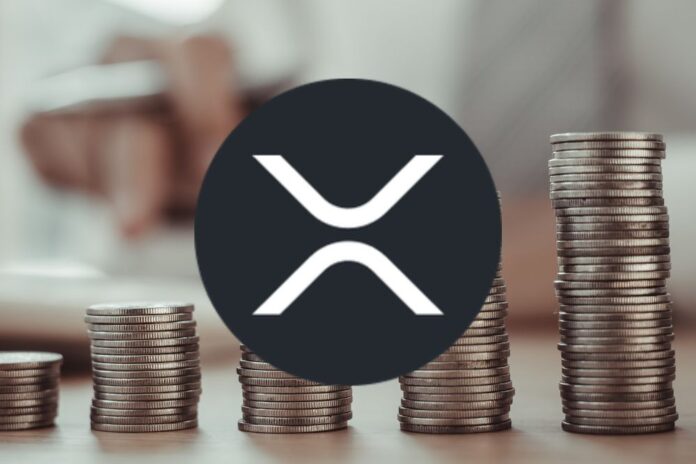Crypto researcher All Things XRP has highlighted the growing adoption of XRPL sidechains, emphasizing their transformative impact on XRP.
According to the analyst, these sidechains introduce a new way for XRP to function across multiple blockchain networks, decentralized applications (dApps), and financial ecosystems, all while maintaining the efficiency of the XRPL mainnet.
A sidechain is a separate blockchain connected to the XRPL. It operates independently, with its rules, validators, and tokenomics, yet remains securely linked to the mainchain through a bridge mechanism.
🚨⚠️ XRPL SIDECHAINS HAVE BEEN RUNNING QUIETLY — AND THEY CHANGE EVERYTHING FOR XRP.
This isn’t just about scalability. It’s a shift in how XRP can be used across multiple chains, dApps, and ecosystems — without compromising the XRPL core.
Here’s how it works and why it… pic.twitter.com/CTmuctg6ZZ
— All Things XRP (@XRP_investing) April 1, 2025
This approach allows XRPL to scale effectively without affecting the core network’s performance. Transactions on these sidechains do not overload the XRPL, ensuring the mainchain retains its high-speed capabilities, including 3 to 5-second finality and a throughput of 1,500 transactions per second (TPS).
Sidechains provide a pathway for XRP to extend beyond payments, facilitating its integration into decentralized finance (DeFi), non-fungible tokens (NFTs), and smart contracts.
XRP is not just compatible with this system but is a key component. It can be used as gas fees on certain sidechains, bridged as wrapped XRP, or locked on the XRPL to enable transfers. This process increases XRP’s utility while simultaneously reducing its active supply.
The XRPL EVM Sidechain: Enabling Ethereum Compatibility
The XRPL EVM Sidechain, developed by Peersyst with support from Ripple, brings Ethereum compatibility to the XRPL ecosystem. This sidechain allows developers to deploy Ethereum-based applications using familiar tools such as Solidity and MetaMask while benefiting from XRPL’s efficiency. XRP is used as the native gas token, and the sidechain is built on the Cosmos SDK. It achieves over 1,000 TPS with finality times under five seconds.
This integration helps XRPL to interact seamlessly with Ethereum-based assets and smart contracts. Developers who previously relied on Ethereum can now utilize XRPL’s infrastructure without altering their workflows.
Xahau: A Smart Contract-Focused Sidechain
Xahau is another XRPL sidechain designed for smart contract functionality. It introduces a new native token, XAH, built to support lightweight smart contracts known as “Hooks.” This sidechain enhances innovation by allowing developers to experiment with new features without affecting the XRPL mainnet’s stability.
Xahau is fully interoperable with the XRPL, ensuring that assets can move securely between networks. By providing an environment where smart contracts can be deployed efficiently, Xahau contributes to XRP’s expanding role in blockchain applications.
We are on twitter, follow us to connect with us :- @TimesTabloid1
— TimesTabloid (@TimesTabloid1) July 15, 2023
Trust-Minimized Interoperability Through Bridging
A key component of XRPL sidechains is their bridging technology, which ensures secure asset transfers between networks. When assets move between the XRPL and a sidechain, they are locked on the XRPL and mirrored on the corresponding sidechain. Witness servers verify these transactions through a consensus mechanism, removing the need for centralized custody.
This structure ensures that XRP can be utilized across different blockchain ecosystems, from Ethereum to Cosmos and other custom-built networks. Developers can now integrate XRP into platforms where it was previously not viable, all while preserving the security and efficiency of the XRPL mainnet.
XRPL Sidechains Are Already Live
All Things XRP stresses that these advancements are not theoretical. XRPL sidechains like the EVM Sidechain and Xahau are live and actively processing transactions. Bridges are operational, and developers have the necessary tools to build within this ecosystem.
These developments position XRP as a critical asset in the multichain landscape. Instead of being confined to payments, XRP is evolving into a key component for blockchain interoperability. With live integrations and expanding utility, XRPL sidechains represent a significant step in XRP’s continued adoption across various blockchain environments.
Disclaimer: This content is meant to inform and should not be considered financial advice. The views expressed in this article may include the author’s personal opinions and do not represent Times Tabloid’s opinion. Readers are urged to do in-depth research before making any investment decisions. Any action taken by the reader is strictly at their own risk. Times Tabloid is not responsible for any financial losses.
Follow us on X, Facebook, Telegram, and Google News


